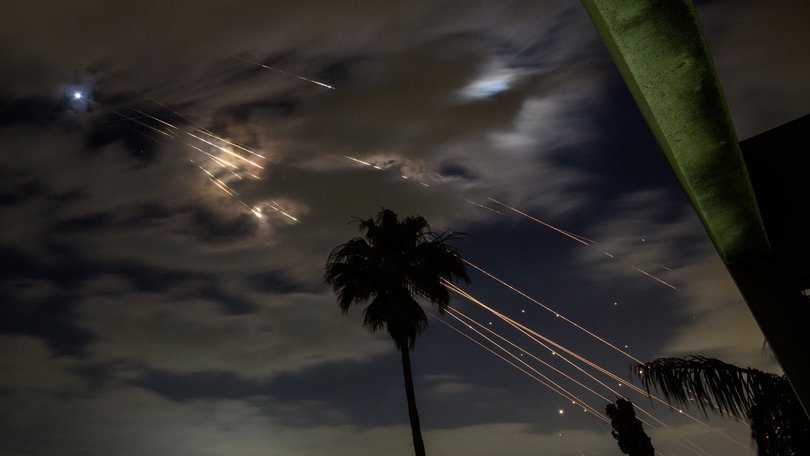Markets are shrugging off the Israel-Iran conflict. Some strategists warn of complacency
Despite the continued fighting — with hundreds reported dead — global stock markets have sustained positive momentum.

Global investors may be underpricing the impact of a conflict between Israel and Iran, market watchers warned overnight Monday, as stocks rallied despite escalating warfare in the Middle East.
The two regional powers continued trading fire on Monday, marking the fourth consecutive day of fighting since Israel launched airstrikes against Iran last week.
Despite the continued fighting — with hundreds reported dead — global stock markets sustained a positive momentum on Monday, seemingly shrugging off broader concerns about the conflict.
Sign up to The Nightly's newsletters.
Get the first look at the digital newspaper, curated daily stories and breaking headlines delivered to your inbox.
By continuing you agree to our Terms and Privacy Policy.Russ Mould, investment director at AJ Bell, warned on Monday that there was a risk markets were underpricing “the risk of a major conflagration in the Middle East”, particularly when it comes to the energy market.
European shares opened broadly higher on Monday, with Asia-Pacific stocks and US stock futures also trading in the green. Even Middle Eastern indexes saw gains on Monday, with the Tel Aviv 35 index last seen trading one per cent higher after falling 1.5 per cent last week.
“This is partly because there are so many moving parts and geopolitical considerations, and partly because the potential outcomes are so unthinkable,” Mould said. “In a worst case, oil and share prices would be the least of our worries.”
In a Monday morning note, David Roche, a strategist at Quantum Strategy, warned that the conflict between Israel and Iran “will last longer than the Israeli lightning-strikes that the market is used to”.
Torbjorn Soltvedtp, principal Middle East analyst at Verisk Maplecroft, agreed, saying an escalation remained of “huge concern”.
“What we have now is very different, and what we’re seeing is effectively a war and an open-ended one,” he said.
“And of course, that is something that has huge implications, not just for the region, but also for energy markets and how they interpret what is happening. You know, minute by minute and day by day.”
Energy markets have moved the most on news of the attacks, as the Israel-Iran conflict stoked supply concerns.
While Friday marked the biggest single-day gain for crude since Russia’s full-scale invasion of Ukraine in 2022, however, global benchmark Brent crude futures — last seen at $US73.75 a barrel — were still far below the prices seen in the aftermath of Moscow’s incursion into Ukrainian territory.
“A lull is the most likely outcome before later escalation when Iran rejects US Trump’s overtures,” Roche said. “The market is likely to mistake the lull for lasting peace. I would use the lull to buy into energy assets as a safe haven.”
‘Very modest’ market reaction
Some market watchers are taking a somewhat less pessimistic view, however.
In a note on Monday, Deutsche Bank’s Jim Reid noted that while both Iran and Israel had traded retaliatory blows, they had so far avoided “the most extreme escalatory steps”.
“As geopolitical shocks are becoming more frequent it seems it’s now at least a yearly occurrence that we refer to our equity strategists’ work on the impact of such shocks and how long it takes for the market to recover from them,” he said.
“The typical pattern is for the S&P 500 to pull back about -6 per cent in three weeks after the shock but then rally all the way back in another 3,” Reid said.

”[Our strategists] believe this incident will likely be milder than this unless we get notable escalation as they highlight that equity positioning is already underweight … and a -6 per cent selloff would need it to fall all the way to the bottom of its usual range.”
Philippe Gijsels, chief strategy officer at BNP Paribas Fortis, saidon Monday that he feels the market is correct in not pricing a huge escalation, such as the US being drawn into the fray, or a blockade of the Strait of Hormuz.
The Strait of Hormuz, nestled between Iran and Oman, is a vital oil transit route through which millions of barrels of oil are transported every day.
“Still, the market reaction has been very modest, so there is room for disappointment if things were to escalate,” Gijsels conceded on Monday.
CNBC
Originally published on CNBC
